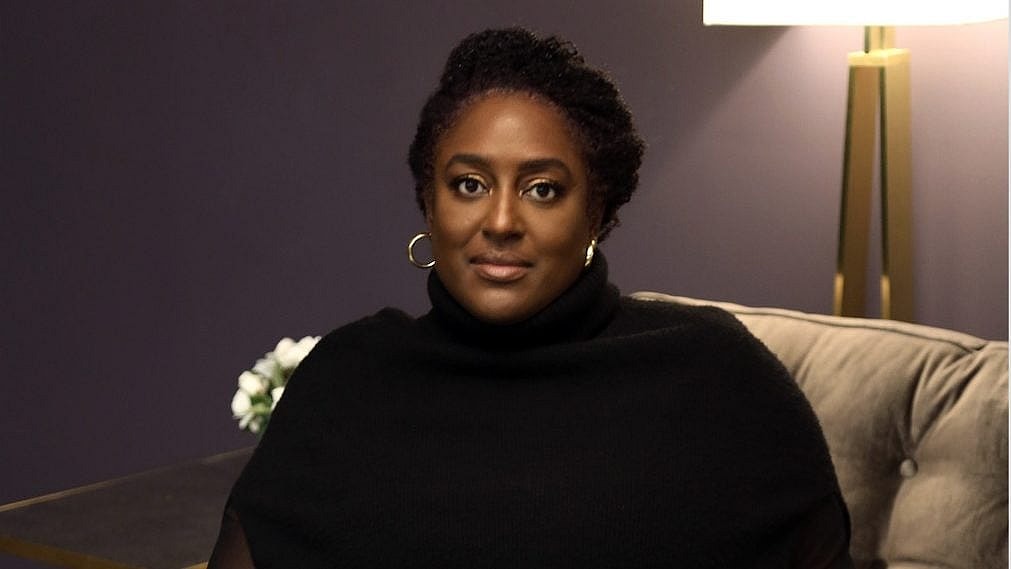As the owner of TCA talent agency, Tracy Christian is making big moves in Tinseltown and she’s doing it on her own terms. She’s one of the only Black women to run a Hollywood agency and her company represents artists, actors, writers, directors, and producers in film, television, and theater including one particularly heavy-hitter, Mona Scott-Young.
Throughout her impressive career, Christian has carved out her own path in an industry known for underestimating the significant value of Black women, representing ,Young, creator of VH1’s Love & Hip Hop franchises, among others.
READ MORE: Mona Scott-Young defends Amara La Negra colorism storyline on ‘Love & Hip Hop’
“Mona is kind of our prototypical client. I have known her for over 20 years and she always had an eye on the horizon. She aways wanted to get into film and television. She was running her management company, Violator with her business partner, Chris Lighty,” explains Christian.
“Women are rewarded for what we have done and men are rewarded for their potential. They were both geniuses in their own way, but I was very close to Mona and I made it my mission to help her break out in film and television.”
A helping hand
Tracy Christian was instrumental in getting Young’s production company, Monami, off the ground and clearing the way for her super-successful franchise Love & Hip Hop to get on the air, launching several spin-off series, and ultimately landing a lucrative overall deal with Lionsgate.
“When [Mona] formed Monami, I showed up at her house, climbed into the guest bedroom and we sat there and figured it all out. How much do we have to bring in so that you can afford your life? What’s the best way to do that? Unscripted television. We went from there. The Lionsgate deal was definitely part of the plan,” she says.
“I have what’s called a boutique agency. That refers to the size of it. There aren’t more than 1,500 agents here, so we have to be really smart and very calculated about the moves that we make. There aren’t 15 different departments. Everybody has to show up and work. We have to define what our goals are financial and otherwise. I had a certain way that I wanted to do business and a lot of people told me that it wouldn’t work. In many ways, Mona was my willing guinea pig. It worked out nicely for everybody.”
READ MORE: EXCLUSIVE: Alfre Woodard and Gabrielle Dennis on the state of Black women in Hollywood
Canceling the noise
Tracy Christian ignored the naysayers and forged her own path, one not often traveled by Black women.
“I was built and prepared to be the only one at the table. My parents prepared me for that with the school that I went to. It wasn’t unusual for me to be the only nappy-haired, little girl in the classroom. I know how to blaze a trail. I’m going to live my life to my full potential, irrespective of the political climate or what people believe I can do or should be doing,” she explains.
“My struggle is to be the best damn Tracy Christian that I could be and as a result of that, there will be some little girl that graduates from school and knows that if she wants to represent nothing but heavy metal bands, it will be a little easier for her.”
That fierce confidence and determination didn’t come without some annoying experiences.
“In the beginning there were so many dumb things. For agents, so many of our relationships are over the phone. We are speaking to the same 100 people for 20 years. I would finally meet someone in person and they wouldn’t say ‘I didn’t know you were Black’ but you can tell by the look on their faces that they didn’t know. Or, people would assume I only represent ethnic talent because I’m a person of color.”
Follow the money
While some would like to think that the growing numbers of Black content creators, and Black stories being told in Tinseltown today is part of a systematic cultural shift; Tracy Christian insists it has more to do with one fundamental aspect—money.
“It used to be that nobody thought you had to program for Black people because they were going to watch whatever the white people watched. Once there were more distributors in the marketplace, they started to program “niche” and the money people saw that over and over again, Black people chose Black,” she explains.
“For a while, they just put some Black people in the project. It’s not enough to have ‘ER’ on the air with one little Black doctor with half a storyline every other season. You’re not going to get us with that any longer. You have to make a real commitment to programming if this is the audience you want to attract. It’s always about shareholders and the bottom line. I think our community has become more savvy about where we spend our dollars.”
Cross over support
Christian’s successful track record proves she never needed a man’s face or a white face to legitimize her talents and she has been inspired by the support she received from some of the industry’s biggest names.


